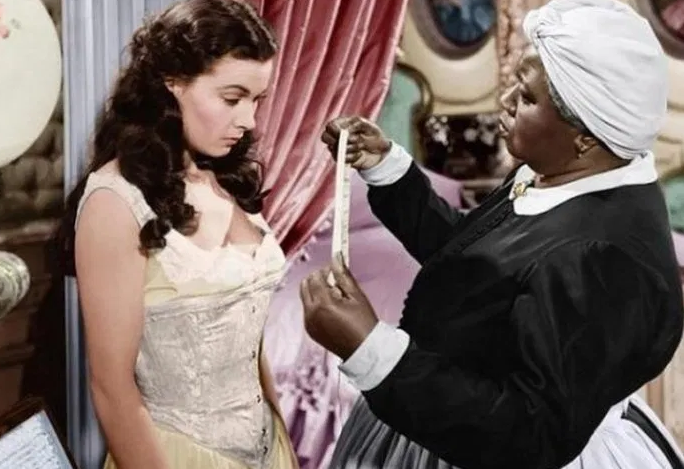種族主義引發(fā)對(duì)于流行文化的思考
After George Floyd, an unarmed African American man, died while in police custody on May 25, people across the United States took to the streets. The protests – peaceful and otherwise – have also once again shone a light on a societal issue that extends beyond borders.
5月25日,手無寸鐵的美國(guó)非裔男子喬治·弗洛伊德在警方執(zhí)法拘押時(shí)身亡,此后,全美各地的人們走上街頭抗議。這些抗議——不論和平與否——都再次反映了一個(gè)不僅是美國(guó)才有的社會(huì)問題。
In countries around the world, this recent event has sparked awareness of racial injustices and recently we have seen statues toppled, a call to legal reform and even a focus on inequality within the film industry. Indeed, this issue is not one that has just rippled through the streets, but impacted how we perceive elements in popular culture, raising the question, "Should we re-think how we've previously perceived films, TV shows and various other media?"
在世界各國(guó),近期的這一事件都讓人們意識(shí)到了種族不平等的現(xiàn)象,這些天我們也看到了雕像被推倒、呼吁法制改革、甚至關(guān)注影視行業(yè)內(nèi)不平等現(xiàn)象的新聞。的確,這個(gè)問題不光在街頭上擴(kuò)散,也影響著我們?nèi)绾慰创餍形幕兀⑻岢隽诉@樣一個(gè)問題:“我們是否應(yīng)該反思自己先前對(duì)于電影、電視劇以及其他類型媒體的認(rèn)知?”
As one example, Gone With the Wind, long since regarded as a classic, has been pulled from the US streaming platform HBO Max. The 1939 film depicts images of slavery during the US Civil War, which may be considered controversial during this time. As an HBO Max spokesperson stated on CNN, "These racist depictions were wrong then and are wrong today, and we felt that to keep this title up without a denouncement of those depictions would be irresponsible."
其中一個(gè)例子便是早已被視為經(jīng)典之作的《亂世佳人》被美國(guó)流媒體平臺(tái)HBO Max下架。這部1939年的電影描繪了美國(guó)內(nèi)戰(zhàn)時(shí)期奴隸制的畫面,在如今看來或許存在爭(zhēng)議。一位HBO Max發(fā)言人向美國(guó)有線電視新聞網(wǎng)表示,“這些種族主義的刻畫在當(dāng)時(shí)與如今都是錯(cuò)誤的,我們認(rèn)為讓這部電影在沒有對(duì)這些描繪進(jìn)行譴責(zé)的情況下保持上架,是不負(fù)責(zé)任的行為。”

In addition, the reality TV show Cops was canceled and British comedy Little Britain was removed from several streaming sites for their use of blackface – applying makeup to a non-black actor in order to represent a black person.
此外,電視真人秀節(jié)目《警察》以及英國(guó)戲劇《小不列顛》也因使用黑色面孔——將非黑人演員化妝成黑人——而遭到多家流媒體網(wǎng)站下架。
The issue of inequality within the film and television industry is not new. As a HuffPost article noted, "In the more than 90 years of the Oscars, no black director has ever won the Best Director award, no black women have been nominated in that category, and only two films by black directors have been awarded Best Picture: Steve McQueen's 12 Years a Slave and Barry Jenkins' Moonlight."
影視行業(yè)內(nèi)的不平等問題并非是新鮮事。正如《赫芬頓郵報(bào)》的一篇文章所指出的那樣:“在奧斯卡90多年的歷史中,沒有一位黑人導(dǎo)演獲得最佳導(dǎo)演獎(jiǎng),沒有一位黑人女性獲得該獎(jiǎng)項(xiàng)提名,只有兩部黑人導(dǎo)演執(zhí)導(dǎo)的電影獲得最佳影片:史蒂夫·麥奎因的《為奴十二年》和巴里·杰金斯的《月光男孩》。”
However, current circumstances have encouraged The Academy of Motion Picture Arts and Sciences – the organization that awards the Oscars – to take action. The Academy recently announced a new initiative that aims to expand diversity and inclusion within the filmmaking industry.
而眼下的情況也讓組織頒發(fā)奧斯卡獎(jiǎng)的美國(guó)電影藝術(shù)與科學(xué)學(xué)院采取了行動(dòng)。該學(xué)院近期宣布了一項(xiàng)新倡議,意在讓電影行業(yè)變得更多元、更包容。
"To truly meet this moment, we must recognize how much more needs to be done, and we must listen, learn, embrace the challenge, and hold ourselves and our community accountable," said Academy President David Rubin.
“為了真正直面這一時(shí)刻,我們必須承認(rèn)需要做的還有更多,我們必須傾聽、學(xué)習(xí)、接受挑戰(zhàn),為我們自己以及我們的社群負(fù)起責(zé)任來,”學(xué)院主席大衛(wèi)·魯賓如此說道。


